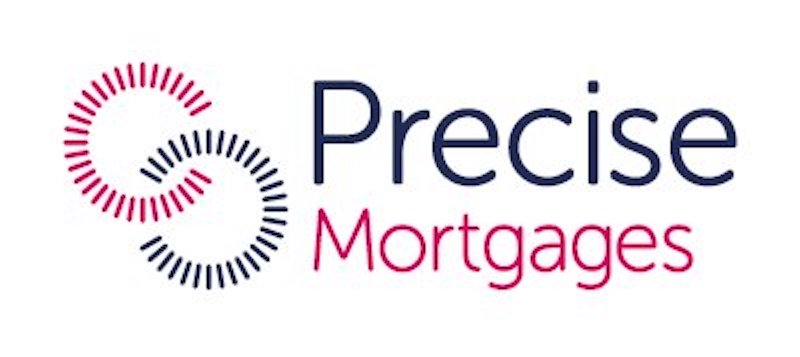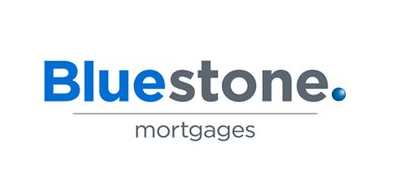Mortgages After Home Repossession
We have assisted over 10,000 customers with poor credit. We excel at it! Request FREE advice and prices with no strings attached. No initial credit check.
Free expert service
Rated 5 Star on Google
No impact to credit score
We're Bad Credit Mortgage specialists with access to the whole of the market!
Have you filed for bankruptcy, entered into a debt management plan, received a CCJ, or gone into default in the past 6 years? You shouldn’t be concerned. We have extensive experience in the mortgage sector and often collaborate with bad credit mortgage lenders who focus on helping borrowers like you.






Can I obtain a mortgage following a repossession?
The answer is YES.
It is totally feasible to obtain a mortgage following a repossession. Nevertheless, not every lender will welcome applicants with open arms. One of the most serious types of poor credit is repossession, particularly when applying for a mortgage. This is due to the fact that you previously let a mortgage go into default. It’s crucial to realise that getting a mortgage approved won’t be simple.
There are lenders who specialise in mortgages for those with poor credit and have packages developed just for this purpose. Prior to making a loan, specialised lenders will still do an evaluation. Obtaining a mortgage after a repossession may be feasible, depending on your circumstances.
When was your property repossessed?
Lenders will pay special attention to the length of time that has passed after the repossession of your home.
- Less than 1 year: Unless your financial status significantly changes, such as through an unanticipated bequest that enables you to make a sizable down payment, your prospects are almost zero. Even then, you will have to submit an application to a specialised lender and almost certainly pay a hefty interest rate.
- 1-2 years ago: There are specialised lenders who will accept applications if you fulfil all other financing requirements. Your options for lenders will still be quite restricted, and you’ll probably require a 30% deposit.
- 2 – 6 years ago: You will require a comparable down payment, but because more lenders may be willing to consider your application, the interest rate you receive may be a little more attractive.
- Over 6 years ago: There are suppliers who will handle your application similarly to every other once this period of time has gone. As a result, you might obtain a mortgage with more typical interest rates and a larger selection of deposit possibilities.
Your credit report will reflect the repossession for six years. Your credit score may rise once it starts to fall. However, most lenders include a question on their application asking if you’ve ever had a home repossessed, so you might still need to disclose it.

How do lenders evaluate candidates who have had their homes repossessed?
Following a repossession, lenders often evaluate mortgages based on the following:
- Information on the repossessed property, including the date and value
- Your financial and credit history following the repossession
- Your financial situation at the moment
Before applying for a mortgage, it is important to do your homework and get yourself ready, and this is especially true if you’ve ever had a home repossessed in the past. The decision of whether or not to lend money to you will ultimately be made by the lenders. Because of this, it is essential to have an understanding of how a lender will evaluate you once they have taken possession of your property.

What circumstances led to the repossession of your home?
Many conventional lenders would reject any application from customers who have already experienced repossession. However, there are many specialised lenders that are willing to talk about the circumstances that led to it and show flexibility.
Uncontrollable circumstances like illness or unemployment will be seen favourably as comparison to a repossession brought on by merely overextending oneself financially. Regardless of the cause of the repossession, you must show that your financial situation has improved.
Lenders frequently need supporting documentation for your application to aid in their evaluation. Your application’s chances of being approved for a mortgage can be improved by having one of our specialised advisor present it. Expert mortgage guidance is crucial since we are aware of the best lenders to work with and how to present your application.
Because several lenders are affiliated with the same banking group, getting turned down by one will certainly result in rejection from the others in the group. To this end, having the assistance of one of our professional advisers can greatly increase the likelihood of your mortgage application being accepted.

How have you managed your credit following the repossession?
It’s crucial to persuade the lender that your financial issues were a temporary setback and that you can now make payments when you apply for a mortgage following a repossession.
The vast majority of providers are going to assume that there were additional financial concerns at the time of the repossession. After all, your residence was likely the very last object to be lost.
Lenders will thus be seeking to establish that you have engaged into payment plans with creditors and kept your pledges, even though other negative credit is common. This might be done directly with creditors, through a debt management firm, or through an IVA.
If you’ve since obtained more credit it must have been responsibly managed.
Your current account balance should ideally be in the positive. Regularly using an authorised overdraft won’t necessarily preclude you from acquiring a mortgage, but doing so will raise a red signal for lenders.
Payday loans are a bad idea since they show that you don’t have good control over your finances. Since lenders must lend responsibly under the law, lending tens (or hundreds) of thousands of pounds to someone who is having a hard time making ends meet may be seen as risky.

4 Reasons why to use us?
We believe that everyone deserves the opportunity to own their own property and recover from an adverse credit history. We put you in touch with a specialist mortgage advisor who has access to the whole of the UK mortgage market and will help you secure the best bad credit mortgage deals for you in your current circumstances.
Quick quote calculator
Our approach - and how we do it
Get in touch!
We love speaking with our clients. Give us a call, fill in one of our contact form or chat with us on 0330 043 1143 right away!

We’ll introduce you for free
We’ll put you in touch with one of our qualified mortgage advisors who will discuss your options and answer your questions.

... and relax!
With the expert advice you’ll be able to find the best mortgage deal for your particular circumstances.
See what others think ...

Steven Brunning
Aidan and Kayleigh were absolutely brilliant. They were very pro-active throughout and gave us confidence that they were identifying the most appropriate products on the market for our needs! We felt very reassured and are grateful for them helping the transaction to run as smoothly as possible.
Zara Akhtar
From the very start Michael, who I initially spoke with was the extremely helpful and professional. I was struggling to find a lender due to my personal circumstances. Michael was very open and honest with me and actually managed to find a lender who would consider my circumstances. This is something other brokers were unable to do!
I started my mortgage journey thinking I could never get a mortgage, well if I did I would be a long time due to a few mistakes I made back when I was a student. I got speaking to Luke Grosse. After months of searching things couldn’t of gone smoother on his end, he got me a mortgage offer. Easy to talk to, straight forward, explained everything in detail while being patient. Couldn’t recommend this company and Luke in particular any higher as my experience with them was fantastic. Finally completed on my purchase today and now I am a home owner with my fiancé.
This being our first property purchase, we were very unfamiliar with the how things worked. With the support and help by these two fine ladies, we were able to steer in the right direction. We had constant communication throughout the process and communication was key in these purchase too. I definitely speak highly and recommend others the mortgage advisor as they were always willing to help and support us in any way possible.
Let us find your perfect mortgage.
We have access to a variety of specialised lenders that are willing to take into account anyone who has previously participated in an IVA. In order for you to determine if you want to move forward with looking for a mortgage arrangement, we are delighted to provide you with some initial free advise to get a sense of your existing situation.
How we can help you secure a mortgage after repossession
If you have had a property or properties repossessed, you may feel as though you will never be able to own your own house again. This is a common perception among those who have been through this experience. Remember that if you have the correct counsel and assistance, it is possible to locate a lender that will take into consideration your application. This is the most essential thing to keep in mind.
This is where our experienced mortgage brokers that work with clients with negative credit come in. Because of our extensive expertise and extensive knowledge, we have the ability to match the specifics of your situation with the lender who is most likely to take a sympathetic view of the specifics of your situation.
Contact us right away if you’ve had your house repossessed but are considering applying for a new mortgage now that you’re in a position to do so. We will provide you with guidance that is both honest and objective, and we will stand by your side throughout the application process.

Meet our experts
Michael Buckley
Director / Mortgage & Protection Advisor
Aidan Comerford
Sales Manager
Luke Grosse
Mortgage & Protection Advisor
Chris Kenny
Mortgage & Protection Advisor